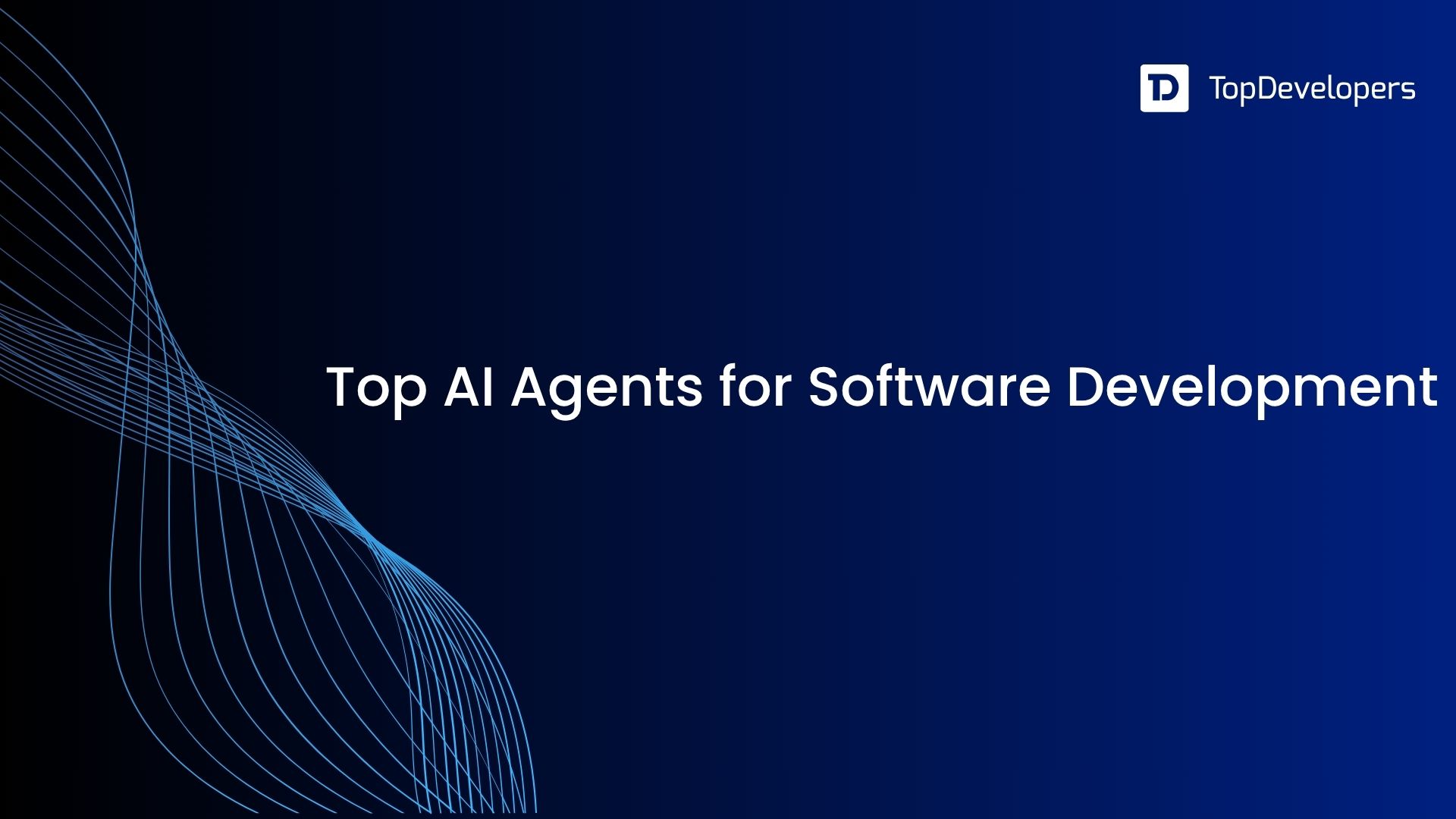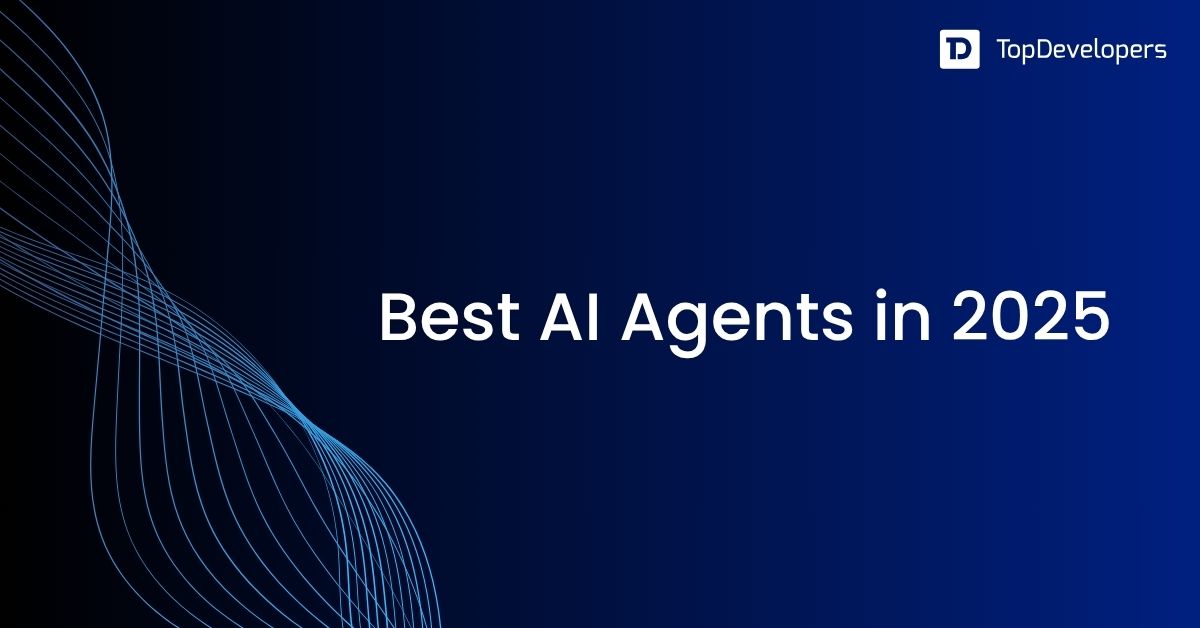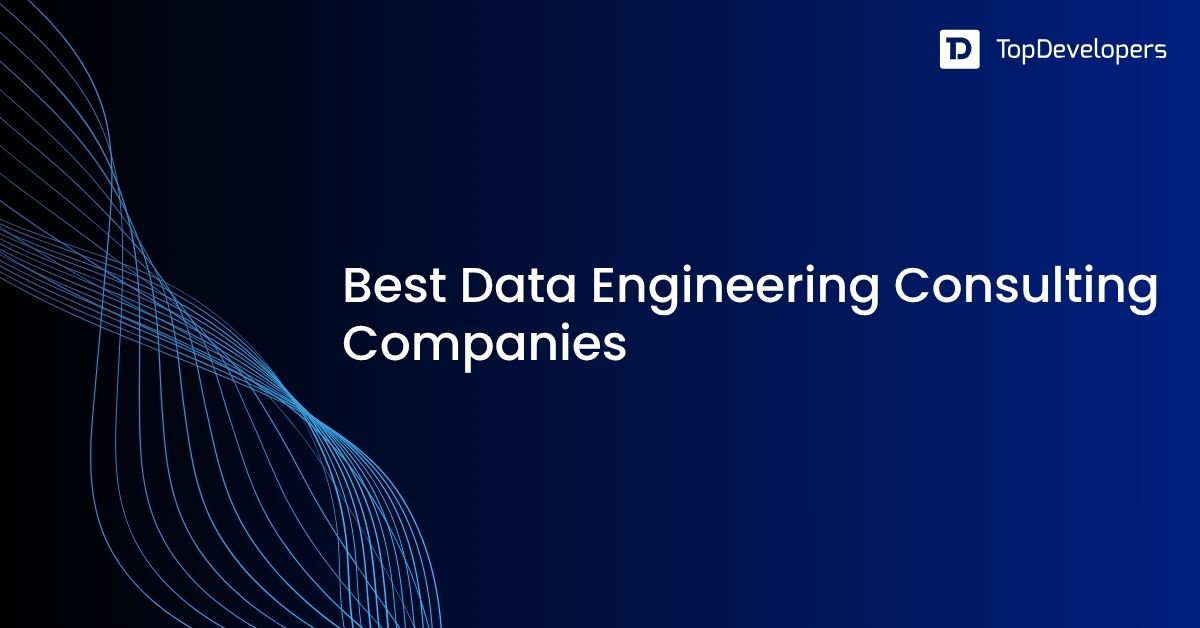
The web is changing quickly. In 2025, it is no longer just about writing code. It is about how code is created, tested, and launched. AI agents are leading this shift.
These intelligent tools go beyond assisting developers. They are changing the way websites are built from start to finish. From generating layouts to managing backend logic, AI now plays an essential role in web development.
This is not a small upgrade. It is a new way of working that is faster, smarter, and more efficient.
According to Stack Overflow’s 2024 Developer Survey, more than seventy percent of professional developers are now using AI tools in their workflows. This includes tasks like writing code, debugging, and exploring new solutions. Even developers who were once skeptical are beginning to trust AI as a reliable assistant.
This shift is important. Web development projects are becoming more demanding. They require faster delivery, smoother user experiences, and stronger performance. At the same time, clients and users expect results in less time and at a lower cost.
AI agents are built to handle this pressure. They offer fast responses, suggest optimized code, and help automate repetitive work. Developers can focus on creativity and critical problem solving while AI handles the heavy lifting.
By 2025, teams that fully embrace AI agents will not just move faster. They will set the new standard for how modern web development gets done.
This is the moment to get ahead. AI is not just helping with code. It is reshaping how the entire workflow operates, from design to deployment.
Table of Contents
What Are AI Agents in Web Development?
AI agents are smart systems that handle web development tasks with minimal human input. They can write code in HTML, CSS, and JavaScript. They can find bugs, fix them, and even deploy applications.
These tools learn from large datasets. They can also adjust to the specific needs of a project. Some work alongside other AI agents or software tools to complete full workflows.
Think of them as digital team members. They do not replace developers. They help developers do more in less time.
How AI Agents Are Transforming Web Development

AI agents are becoming powerful partners in the web development process. They help reduce manual work, improve speed, and unlock better user experiences. From frontend design to backend logic, these tools are reshaping the way teams build and launch digital products.
1. Automating Repetitive Tasks
Many parts of web development repeat across projects. Tasks like generating CSS styles, setting up APIs, or creating test cases can take hours in every sprint.
AI agents now handle these jobs with ease. They write clean code, set up environments, and build test routines without much human input.
This saves hours for developers. It frees up their time to focus on logic, structure, and problem solving.
2. Enhancing Front End Development
AI tools are now improving how interfaces are designed and built. Solutions like Sketch2Code and Figma AI plugins can turn design files into working layouts within minutes.
Other tools take simple code and turn it into reusable components. This makes building user interfaces faster and more consistent.
With these tools, teams can move from design to working pages in less time. The result is better alignment between designers and developers.
3. Streamlining Back End Development
Building the backend is now faster with help from AI agents. They suggest data models, write authentication logic, and generate API boilerplates.
Instead of writing each schema from scratch, developers get smart recommendations. These suggestions are based on patterns in similar projects or common frameworks.
This means fewer bugs, more consistency, and faster project setups.
4. Real Time Collaboration
AI is also changing how teams work together. GitHub-based AI tools now review code, suggest pull request edits, and help resolve merge issues.
This approach keeps humans in control. But it adds AI to assist with reviews, writing comments, or catching mistakes early.
The result is smoother teamwork and fewer delays during code reviews.
5. Optimizing User Experience
AI can look at user behavior data and suggest design changes. It can analyze heatmaps, scroll patterns, and user paths.
With that insight, teams can make informed decisions. They can test new layouts, improve navigation, or adjust call to actions.
This leads to better A and B testing results and smoother experiences for users.
Top AI Agents for Web Developers in 2025
AI agents are no longer experimental. In 2025, they are essential tools in every web developer’s toolkit. Below are some of the most powerful and trusted AI agents that help streamline development from start to finish.
1. LangChain Agents

LangChain agents are built for complex task automation. They are especially strong when it comes to connecting different tools and services.
They handle browser tasks, trigger APIs, and pass data between systems. This makes them ideal for building full-stack automation.
For developers working on multi-layered projects, LangChain agents bring real speed and flexibility.
Core Features
- Tool chaining across services
- API triggering and handling
- Browser task automation
Pros
- Flexible for advanced use cases
- Works across frontend and backend
- Supports real-time data interactions
Cons
- Steep learning curve
- Needs thoughtful planning to scale
Perfect For
- Developers building complex apps that rely on multiple systems working together
2. CrewAI

CrewAI takes a teamwork approach to automation. It uses multiple agents that each focus on a single part of a job.
One agent might write the code, while another checks the logic. A third can handle testing or documentation.
Together, these agents work like a team to finish a complete task faster and with better accuracy.
Core Features
- Task delegation between agents
- Built-in teamwork logic
- Modular execution of steps
Pros
- High output accuracy
- Great for large-scale processes
- Mimics real development team roles
Cons
- Configuration takes time
- Task mapping can be tricky
Perfect For
- Teams needing coordinated automation with smart division of labor
3. AutoGPT

AutoGPT is known for its high level of independence. You give it a single goal, and it figures out the steps on its own.
It is great for writing full scripts, generating app logic, or exploring new code ideas.
Developers who want hands-free code generation will find AutoGPT both powerful and easy to use.
Core Features
- Goal-based planning
- Automatic step generation
- Decision making and execution
Pros
- Requires minimal supervision
- Good for exploration and early prototypes
- Handles entire coding workflows
Cons
- May go off-track without constraints
- Hard to guide once started
Perfect For
- Experienced users looking to automate entire development goals
4. WebGPT

WebGPT is built for online research and search-based development help.
It pulls from trusted sources, documentation, and even Stack Overflow to guide your coding decisions. It is especially helpful during frontend work, where visual accuracy matters.
If you are stuck or need context fast, WebGPT can get you answers within seconds.
Core Features
- Online search capabilities
- Pulls from developer forums and docs
- Supports fast frontend help
Pros
- Excellent for code lookups
- Provides trusted information
- Ideal for design to code transitions
Cons
- Relies on internet connectivity
- Less effective with custom project logic
Perfect For
- Developers who often search online for help or best practices
5. ReAct Agents

ReAct stands for reason and act. These agents combine step-by-step logic with real-time decision making.
They are open source and highly customizable. Developers use them for code analysis, planning, and debugging workflows.
ReAct agents help when your project needs both structure and creative logic paths.
Core Features
- Reasoning through problems
- Stepwise action plans
- Adaptive thinking with each step
Pros
- Strong logical flow
- Customizable for code and data analysis
- Ideal for solving structured problems
Cons
- Can be slower than task-specific agents
- Needs clear task goals for best results
Perfect For
- Debugging, analysis-heavy coding, and multi-step backend logic
6. Lyzr Agent Studio
Lyzr Agent Studio is built for building with modular pieces. It supports retrieval-augmented generation, advanced search, and smart routing.
You can chain together functions, plug in data sources, and launch AI flows quickly.
It is a strong choice for enterprise use, but also simple enough for mid-sized teams to adopt with ease.
Core Features
- Function calling and chaining
- Retrieval from structured data
- Supports data-driven workflows
Pros
- Scales well for enterprise teams
- Handles both frontend and backend logic
- Built for large codebases
Cons
- Less beginner-friendly
- Best with clean data and defined tasks
Perfect For
- Teams looking for a scalable and modular AI development environment
7. GitHub Copilot X in Agent Mode
GitHub Copilot X offers smart support inside your coding environment. It helps write functions, clean up code, and even handle git commands. The agent mode adds more context awareness and deeper project memory.
Developers using Visual Studio Code or GitHub tools will find this integration seamless and fast.
Core Features
- Intelligent code suggestions
- Code cleanup and refactoring
- Helps with git operations
Pros
- Seamless in popular IDEs
- Fast, context-aware suggestions
- Saves time on routine edits
Cons
- Limited to GitHub environments
- Not ideal for project planning tasks
Perfect For
- Developers using Visual Studio Code who want real-time help while coding
8. Smol Developer Agents
Smol Developer Agents are lightweight tools designed for smaller teams and solo developers.
They are easy to set up and fast to run. Ideal for quick prototyping, small features, or side projects.
These agents deliver value without the need for a big platform or complex setup.
Core Features
- Quick code generation
- Simple automation
- Easy setup for basic tasks
Pros
- Fast to use
- Minimal setup needed
- Great for quick wins
Cons
- Limited to smaller projects
- Lacks deep customization
Perfect For
- Solo developers and startups building MVPs or small applications
Benefits of Using AI Agents for Web Development
AI agents are changing the way web development gets done. They help teams work smarter, build faster, and improve code quality from day one.
Here are the key benefits developers are seeing in 2025.
1. Increased Productivity
- AI agents take care of tasks that usually slow developers down.
- They write boilerplate code, set up test cases, and even manage build environments.
- This gives developers more time to focus on the core features of their apps.
- It also shortens sprint cycles and improves team output.
2. Enhanced Code Quality
- Real-time feedback from AI agents helps catch issues early.
- They point out bugs, flag security problems, and suggest better coding practices.
- This makes code cleaner and more reliable before it ever reaches production.
- It also reduces the time spent on debugging later.
3. Faster Prototyping and Deployment
- AI speeds up the journey from idea to working product.
- It helps build minimum viable products quickly and prepares code for staging and release.
- Developers can test ideas faster, share progress sooner, and deploy with confidence.
- This makes innovation more agile and cost-effective.
4. Cost Effectiveness
- AI reduces the need for repetitive manual work.
- This lowers the time spent on development tasks and reduces the need for large teams.
- For startups and growing teams, this leads to real savings.
- Budgets can stretch further without cutting quality or speed.
Challenges and Considerations
While AI agents bring many advantages, developers and teams should also be aware of the challenges that come with them. Being prepared for these issues can help ensure smoother adoption and long-term success.
Learning Curve
- Adopting AI agents often requires teams to rethink how they work.
- Developers must learn new tools, understand agent behavior, and adjust workflows.
- This may slow down progress at the start, especially for teams used to traditional coding environments.
Privacy Concerns
- Many AI tools rely on cloud-based systems to process data.
- This raises concerns about how code, user data, and intellectual property are stored and handled.
- Teams must check compliance with data protection rules and choose tools that meet security standards.
Over-Reliance on AI
- AI is helpful, but it should not replace human judgment.
- Relying too much on AI suggestions may weaken a developer’s critical thinking and problem solving skills.
- It is important to stay involved and question AI decisions when needed.
Cost and Access
- Some of the most advanced AI agents come with premium price tags.
- This can be a barrier for freelancers, small teams, or educational institutions.
- Budget planning is important when choosing which tools to adopt.
Debugging and Error Handling
- AI-generated code is not always correct.
- When errors happen, it can be hard to understand what went wrong or how the AI reached its decision.
- Developers need to stay sharp and be ready to step in for manual debugging when needed.
Intellectual Property Questions
- The ownership of AI-generated code is still being debated.
- Some tools may reuse patterns from their training data, raising legal concerns.
- Teams should review license agreements and stay updated on evolving legal guidelines.
Bias and Fairness
- AI models are trained on large datasets that may contain hidden biases.
- These biases can affect how an app looks or functions for different users.
- This can lead to poor user experiences or unintended discrimination if left unchecked.
Job Displacement Concerns
- As AI handles more tasks, some worry about the impact on developer roles.
- While automation can reduce certain jobs, it can also create new opportunities in AI management and oversight.
- The key is to reskill and evolve alongside the tools.
The Future of AI Agents in Web Development
AI agents are not just helping with today’s challenges. They are also shaping the future of how websites and applications will be built. As technology grows more powerful, AI will unlock new ways to create, design, and maintain digital experiences.
Advanced Natural Language Interfaces
Developers will soon be able to describe entire apps using plain English. AI will turn simple instructions into working code without writing a single line manually. This will open up web development to non-coders and speed up the process for experts.
Personalized User Experiences
Websites will adapt in real time based on user behavior. AI agents will study patterns like browsing time, clicks, and content interaction. This will allow websites to deliver custom layouts, suggestions, and flows for each visitor.
AR, VR, and IoT Integration
AI will help create immersive web experiences using augmented and virtual reality. It will also support integration with connected devices, making the web more interactive and intelligent.This could lead to smarter homes, virtual stores, and more lifelike online environments.
Automated Code Generation and Testing
AI will generate code from wireframes, sketches, or design files in real time.,At the same time, it will run tests to catch bugs before the user ever sees them. This will make the build and test process faster, smoother, and more reliable.
AI-Powered Design Intelligence
AI will keep up with the latest trends in design and suggest changes as you build. It will recommend color palettes, typography, and layouts based on industry best practices.This will help designers and developers create modern, user-friendly interfaces without starting from scratch.
Security and Maintenance Automation
AI agents will monitor code, user activity, and server health around the clock. They will detect bugs, flag security risks, and suggest patches before problems grow. This will keep websites safer and reduce the time spent on manual maintenance.
Getting Started with AI Agents in Your Web Projects
Bringing AI agents into your web development workflow does not have to be complex. It starts with choosing the right tools and setting clear goals. Whether you are building a full app or improving one part of your process, AI can help speed things up and reduce manual effort.
Begin by selecting an agent framework that fits your existing tech stack. Look for tools that are compatible with your language, tools, and deployment platform. If your team uses JavaScript, Python, or cloud-based services, there are agent platforms designed to fit right in. It is best to start with something modular so you can test and scale as needed.
Next, try setting up a few basic tasks to see how the agent performs. For example, use it to generate a frontend component, create a test route, or deploy a preview version of your site. These simple steps help you understand how the agent interacts with your code and tools.
It is also important to manage your compute usage and API calls. Some AI agents rely on cloud-based services that charge by usage. Start with small requests and review your usage often. This helps control costs and avoid hitting usage limits. Many platforms offer free tiers or trial access to help you explore without a large commitment.
Even with smart AI tools in place, quality control still matters. Always review the code and suggestions before pushing changes to production. Set up peer review steps and testing layers to catch issues early. AI can assist with logic and speed, but human judgment is still key to building great web experiences.
Avantika Shergil is a technology enthusiast and thought leader with deep expertise in software development and web technologies. With over 8 years of experience analyzing and evaluating cutting-edge digital solutions, Avantika has a knack for demystifying complex tech trends. Her insights into modern programming frameworks, system architecture, and web innovation have empowered businesses to make informed decisions in the ever-evolving tech landscape. Avantika is passionate about bridging the gap between technology and business strategy, helping businesses build customized software and website, and understand about different tools to leverage effectively for their ventures. Explore her work for a unique perspective on the future of digital innovation.




